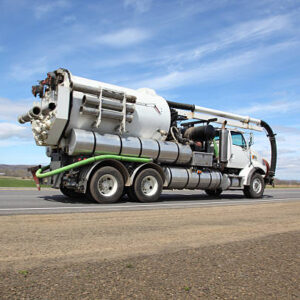The Industrial City of Abu Dhabi (ICAD) is one of the UAE’s most important industrial hubs, strategically developed to diversify the nation’s economy and support long-term growth beyond the oil sector. Located near Musaffah, southwest of Abu Dhabi Island, ICAD plays a critical role in manufacturing, logistics, and heavy industry. With world-class infrastructure, strategic geographic location, and business-friendly policies, ICAD continues to attract both local and international investors.
Overview of ICAD
The Industrial City of Abu Dhabi is a purpose-built zone managed by ZonesCorp, a subsidiary of the Abu Dhabi Department of Economic Development (ADDED). The city spans thousands of hectares and is divided into multiple sectors, each catering to specific industrial functions. It was developed as part of the Abu Dhabi Economic Vision 2030, a plan to shift the economy from oil reliance to a more diversified, knowledge-based model.
There are three main phases of ICAD:
-
ICAD I: Focuses on heavy industries such as steel, metal, and engineering.
-
ICAD II: Designed for medium to light manufacturing industries.
-
ICAD III: Caters to high-tech industries, logistics, and clean technologies.
Strategic Location
ICAD benefits from its close proximity to major transportation networks:
-
Abu Dhabi International Airport – just 30 minutes away.
-
Khalifa Port – a modern deep-water port linking Abu Dhabi with global trade routes.
-
E311 and E30 highways – providing fast road access to the UAE’s main cities including Dubai and Al Ain.
This logistical convenience has made ICAD a preferred site for businesses involved in import/export, heavy goods movement, and regional distribution.
Industries in ICAD
ICAD supports a wide range of industries, segmented to reduce environmental conflicts and maximize efficiency. Key industries include:
1. Metals and Engineering
ICAD hosts some of the region’s leading steel, aluminum, and metal engineering companies. Emirates Steel, one of the largest integrated steel producers in the Middle East, is located here.
2. Chemical and Plastic Industries
Numerous companies manufacture plastic packaging, petrochemical products, and composite materials in ICAD, supported by access to raw materials from ADNOC’s downstream infrastructure.
3. Food and Beverage
ICAD is home to modern food processing and packaging facilities. The presence of cold storage warehouses and logistics partners also supports agricultural and food businesses.
4. Logistics and Warehousing
Thanks to its location and infrastructure, ICAD has become a major logistics hub. Many third-party logistics (3PL) providers operate warehouses and distribution centers in the city.
5. Construction Materials
Factories producing cement, blocks, ready-mix concrete, and glass contribute significantly to UAE’s construction sector.
6. Automotive and Machinery
Vehicle assembly, industrial machinery repair, and equipment manufacturing units also find a home in ICAD, particularly within ICAD II and III.
Infrastructure and Facilities
ICAD was planned with sustainability, scalability, and functionality in mind. Some of the infrastructure highlights include:
-
Roads and Utilities: ICAD has a dedicated utility grid with high-capacity electricity, gas, and water networks. Internal road networks are wide enough for heavy truck transport.
-
Worker Accommodation: ZonesCorp has also developed residential cities near ICAD, offering labor accommodations that comply with international standards.
-
Environmental Compliance: The industrial zone adheres to strict environmental and health regulations, ensuring industries operate with minimal ecological impact.
-
Smart Technology: ICAD III is positioned as a smart industrial city, supporting automation, digital logistics, and Industry 4.0 manufacturing technologies.
Investment Incentives
ICAD offers numerous advantages that make it attractive for foreign and local investors:
-
100% foreign ownership (in free zones)
-
No import or re-export duties
-
No restrictions on capital repatriation
-
Availability of long-term leases
-
Proximity to skilled labor and training institutes
-
One-stop-shop services through ZonesCorp for licensing, utilities, and labor recruitment
In addition, the UAE’s political stability, business-friendly regulations, and tax policies enhance the appeal of investing in ICAD.
Success Stories and Tenants
Some of the major companies and manufacturers that operate within ICAD include:
-
Emirates Steel: A flagship national steel producer.
-
Agthia Group: A food and beverage company with processing plants in ICAD.
-
Al Gharbia Pipe Company: Specializing in large-diameter welded pipes for oil and gas applications.
-
Al Masaood Group: A key player in automotive and heavy equipment.
These companies contribute to ICAD’s status as a national industrial powerhouse.
Challenges and Opportunities
While ICAD has witnessed robust growth, certain challenges persist, such as:
-
Environmental Regulations: Balancing industrial growth with sustainability mandates.
-
Global Economic Uncertainty: Fluctuations in international trade can affect ICAD’s export-heavy industries.
-
Technological Transformation: Adapting to rapid digitalization and robotics remains a continuous challenge for traditional manufacturers.
However, opportunities abound:
-
Green Manufacturing: Incentives for solar energy, waste recycling, and sustainable packaging are driving a new wave of investment.
-
Export Growth: With Khalifa Port’s expansion, companies in ICAD have improved access to global markets.
-
Industrial 4.0: There is a strong governmental push for AI and automation integration across industrial sectors.
Conclusion
The Industrial City of Abu Dhabi (ICAD) is a shining example of the UAE’s strategic commitment to industrial diversification. With advanced infrastructure, sector-specific clusters, and supportive regulations, ICAD continues to serve as a backbone of the country’s manufacturing economy. For investors, manufacturers, and logistics companies, ICAD offers an ideal environment to grow, innovate, and connect with global markets. As Abu Dhabi advances toward Vision 2030, ICAD will remain a cornerstone of that industrial future.



